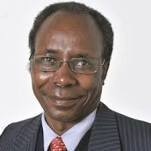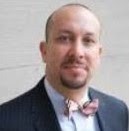Africa and Africanity Lecture Series: Future of Religion and Religiosity of the Future
Columbia Global Centers | Nairobi invites you to our second series of live Webinar Lectures, this lecture will focus on 'Future of Religion and Religiosity of the Future'.
There is a dimension of human identity that cannot be expressed empirically. That is the essence of religiosity. Some call it spirituality; others call it sacredness. Through whatever label we prefer, we acknowledge that our senses are not adequate for expressing our innermost feelings and aspirations- our ultimate concerns.
Professor John S. Mbiti, who passed on in October 2020, emphasized that Africans are “notoriously” religious. I would suggest that humans are” incurably” religious- not only Africans but all humans. Africa is the Theater in which the Drama of competing religions is played. Africans are both the Actors and the Audience in their own Drama, cheered by onlookers and bystanders who from time to time toss tokens of appreciation or disdain.
There was a time when religiosity pervaded the cultures of Europe and North America. Those were the days when Constitutions took God for granted. A new deity entered the cultural stage. It was called Reason, with a sister called Technology. The whirlwinds of technology and progress without ado swept aside religiosity, and secularity became the norm. In the meantime, Africa wore the garbs of Europe and North America, spoke their languages, played their music while dancing their dances. But African religiosity remained intact, underneath the new religion. The Third Millennium has begun with Africans taking religion seriously, while elsewhere technology and progress took center stage. The future will tell, whether Africa will go secular, or return where it all began, in the core of our being.
Moderator Bio

Professor Jesse N.K. Mugambi – Alumnus of the University of Nairobi – is a member of academic staff since 1976 in the Department of Philosophy and Religious Studies. On Leave of Absence he taught at other universities– including 1990-91 at Rice University, Houston, Texas, as Visiting Mellon Distinguished Professor in the Department of Religion. Among other responsibilities he has been Resource Person for the All Africa Conference of Churches (AACC) since 1974; World Student Christian Federation (WSCF) since 1974; and World Council of Churches (WCC) since 1975. His professional training is in Education and Communication; and his academic specializations include Philosophy, Theology and Religious Studies. He rose through the ranks to full professorship in 1993. In the University of Nairobi Administration he served as Chairman of Department (1986-90); Associate Dean, Faculty of Arts (1990); Academic Registrar (1990-94). On Leave of Absence he taught at Christian Theological Seminary, Indianapolis (1982-83; Guest Professor at the University of Copenhagen, Denmark (1997); Visiting Professor at Emmanuel College, Toronto, Canada (1999); Visiting Professor at the University of South Africa, Pretoria (2000). He also served as Director of Starehe Boys Centre, Nairobi (2007-2008), on Leave of Absence from the University of Nairobi.
His works (as author/co-author and as editor/co-editor) include African Religious Heritage (1976); Philosophy of Religion (1988); African Christian Theology (1989); African Heritage and Contemporary Christianity (1992); Critiques of Christianity in African Literature (1992); Moral and Ethical Issues in African Christianity (1992); Christianity and African Culture (1989, 2002); A Comparative Study of Religions (1990, 2010); From Liberation to Reconstruction (1995); Religion and Social Construction of Reality (1996); Christian Theology and Environmental Responsibility (2001); Religions in Eastern Africa Under Globalization (2002); Christian Theology and Social Reconstruction (2003); Church State Relations (2004); Responsible Leadership: Global and Contextual Ethical Perspectives (2009); Contextual Theology Across Cultures (2009); Applied Ethics in Religion and Culture (2012). He is a Contributor of Articles in the Cambridge Dictionary of Christianity (2010); Handbook of Theological Education in Africa (2013); Routledge Companion to Christianity in Africa (2015); T&T Clark Handbook of Theology and Climate Change (2020). The CGC Webinars addressed by Professor Mugambi are pointers to the dialectical relationship between the global and the local; religious and secular; the individual and society; the long-term and the short-term.
Respondent Bio

Prof. Josef Sorett is the Professor and Chair, Department of Religion; Professor, Department of African American and African Diaspora Studies
